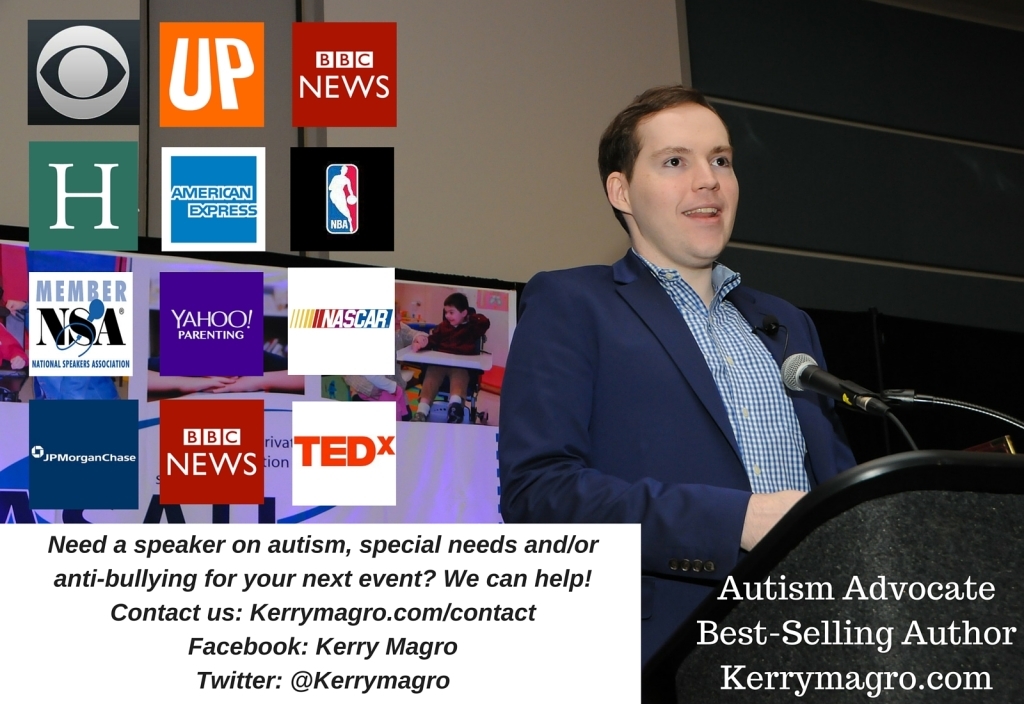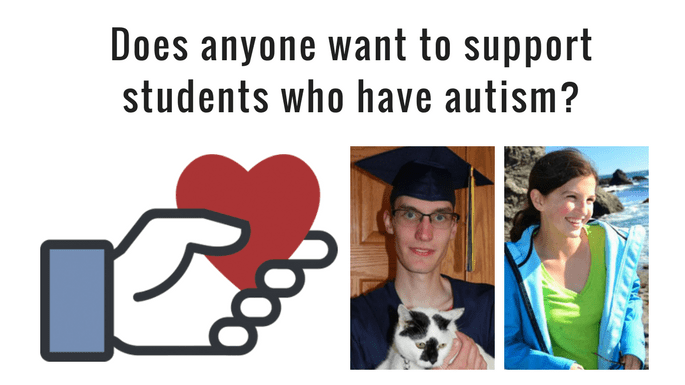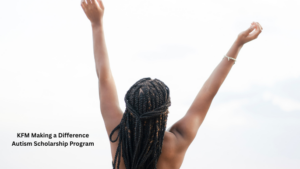Kirby Kellogg is a twenty year old college student, freelance journalist for Belladonna Horror Magazine, and aspiring broadcaster. Working towards a Bachelor’s degree in Communications, she’s also her college’s Student Communications Board Chair and a Student Senator. Kirby is currently attending the University of Southern Maine. Kirby is applying for the Spring 2018 Making a Difference Autism Scholarship via the nonprofit KFM Making a Difference. You can read more about the organization and how to apply for our scholarship here. You can help our scholarship program continue to help these students by making a donation here (the majority of our scholarship program is ran through donors from our community such as yourself).
One of the worst feelings in the world is when everyone in the room gets the joke except for you.
It starts when you’re a little kid, confused by the world and trying to make connections. First, you connect with crows. You follow them around on the playground, appreciating their pretty black feathers and their kind but empty eyes. The other kids start calling you ‘Mama Crow’ and you think it’s a term of endearment, even start cawing as they run away from you laughing. It isn’t as funny in retrospect.
Your mother tells you to control your volume, ‘stop making chipmunk arms’, yells when your grades slip and asks you how you can focus so much on certain tv shows but not on your work. You watch only Schoolhouse Rock for a bit, cut off from everything else in the media except for books and that. The strains of ‘Conjunction Junction’ are still fond, but they make you remember things that make you sad. It’s not like you understand it either.
Then you get up into high school. You get really interested in David Sedaris for a while, then in penguins, then in Regina Spektor, on and on. You don’t get sarcasm, the other kids make the old ‘gullible is on the ceiling’ joke and then laugh because you still fall for it. The jokes about you being on drugs are constant, even though the closest you’ve ever been to anything stronger than an aspirin is when your mother rejected a Vicodin prescription after your teeth get taken out for braces. They keep laughing at you and how you act and think.
They’re all laughing over something you don’t know, some cosmic inside gag that you’re locked out of. It’s even worse when you try and ask about the joke and they tell you not to think about it too hard and that it’s ‘nothing you need to worry about’. So you spend your whole life hearing people laugh about the joke and you aren’t allowed in. Finally, you start figuring out what the joke means and you tell your family about it and your mother tells you, hands in your hair just after your sister’s wedding, that you and your brother have the same ‘sense of humor’. She calls it a ‘spark’, laughs, and you don’t ask about the joke again.
It’s only in college, far away from home and discovering yourself, that you manage to convince your family that you know what the joke is. They admit that they’ve always known, but never told you or even looked into it any further than a conversation or two with the special education teacher. Your doctor says the same thing. The joke is that you’re autistic, and everyone seemed to have gotten it but you and they never told you.
That was how it happened for me.
I wasn’t angry when I found out that I’m autistic. I was elated. Finally, things I’d been doing for years, all of my tics and interests and awkwardness made some modicum of sense. My diagnosis gave me the ability to seek out help when I needed it, a reason to give to people for why I needed assistance. It opened me up to a whole new community of people like me. Other people who were left out of the joke for a long time, some longer than I was. Now I can make jokes about it too, except they’re ones that don’t punch down or punch inward. There’s a side of me I’m still connecting to, years on, that was hidden to me for years and the fact that I get to keep learning about that every single day makes me happy.
Do I wish I’d gotten diagnosed sooner? Yes. I could have gotten help much earlier. Maybe I’d be a different person.
But I can’t go back. I can only move forward, in on the joke and laughing to my own specific brand of humor, no matter how many people can understand it or how many people try to make the joke into bigotry. That’s the final punchline: the joke’s subject gets to laugh about it too, and use her laughter to make others understand. Maybe one day we’ll all laugh together and with complete understanding.

Kerry Magro, a professional speaker and best-selling author who is also on the autism spectrum started the nonprofit KFM Making a Difference in 2011 to help students with autism receive scholarship aid to pursue a post-secondary education. Help us continue to help students with autism go to college by making a tax-deductible donation to our nonprofit here. Also, consider having Kerry, one of the only professionally accredited speakers on the spectrum in the country, speak at your next event by contacting him here.

We’d also appreciate if you could start a Facebook Fundraiser to support our nonprofit’s scholarship fund! You can learn more about how you can do just that here.














